分析针对各平板电脑平台开发应用的优缺点
作者:John Koetsier
若你打算制作平板电脑应用,那么你需要决定支持哪个平台。下面是若干选择建议,能够帮你覆盖最广泛的用户。
选项众所周知:
* iOS
在规模和创收方面是公认的佼佼者
* Android
这是位居第二的强大竞争对手,但存在分裂问题
* Kindle Fire
基于Android系统,但亚马逊通过自己的应用商店将其隔离
* Windows 8
可能是黑马:这是个吸引人的选择,但规模和渗透率问题都有待考虑
* 黑莓
过时?
* HTML5
可将以上平台全部串起来,但其前途尚未明朗。
对于有些人,选择也许非常明显。但有时锁定略显平淡无奇的平台能够给予你一定的市场优势。下面就来看看这些选择。
为什么选择iOS
苹果的iOS在平板电脑销量中是公认的领头军。据Gartner表示,2012年iPad将以61%的销售份额打破竞争局面。所以选择iPad平台的原因就非常明显:这里有广泛的用户。目前iPad平台的用户不仅最多,而且其用户类型最吸引应用开发者。简而言之:他们手头有资金,而且愿意投资。这是个非常富有吸引力的用户基础。
此外,iOS生态系统有非常杰出的基础设施:编码工具、开发者生态环境、发行和推广路径及创收选择。
不利之处是,iOS世界非常嘈杂。iPhone平台有超过50万款的应用,iPad平台有20万以上的应用,你的应用在争取曝光度方面面临巨大挑战。也就是说,如果你是个大型品牌,或持有雄厚资金,那么你就有望从中脱颖而出。
为什么选择Android
如果iPad是领头军,那么Android就是强大的竞争对手。就最近发展来看,Android在平板电脑市场中并不一定会一直落后于iOS。毕竟,Android如今已在智能手机市场中处于领先位置,而这最初的主导者是iPhone。据Gartner的调查报告显示,2012年Android将在平板电脑市场中占据32%的份额,这一数据2016年有望增至37%。
所以Android拥有相当多的用户。1/3的市场份额依然是非常庞大的潜在用户基础,Android平板电脑今年有望售出3500万台(关于此数据的注意问题,详见Kindle Fire部分)。
选择Android作为目标开发平台还有其他原因。这片市场相对不那么拥挤(游戏邦注:较少专门的平板电脑应用),这意味着你的应用将更有机会得到关注。此外,如果你的应用设计精致,操作便捷,那么相比其他Android应用,你更有望从中脱颖而出。
而且,如果你想要在应用开发和推广上享有更多控制权限,那么众多Android市场及较少生态系统限制意味着,你在应用的设计和宣传方面将享有更多自由。
为什么选择Kindle Fire
在上述Android部分,我给出一个提示,这有其原因:Kindle Fire轻松占据50%的Android平板电脑销量。这也是我们将其单独抽出的原因,但更重要的是,亚马逊在所有设备上都预先装载针对Kindle Fire的应用商店。亚马逊应用商店将Kindle Fire变成谷歌和苹果之间的结合体:基于Android系统,带有苹果风格,处于监管状态,有审核机制。
也就是说,我们很难忽略两点事实:Fire的销售数量,亚马逊推广产品的惊人能力。Kindle Fire用户在整个平板电脑流量中占据较高份额,显然这些设备处于活跃运作中。
如果你是Android开发者,想让应用得到另一销售机会,或者如果你觉得应用能够在亚马逊管辖范围内创造更丰厚的收益,那么不妨选择Kindle。就亚马逊用户而言,内容应用似乎是个不错的投资选择,在有些开发者看来,这一平台存在发展机会。
关于Kindle Fire的一个告诫:注意,亚马逊可能会采取某些存有疑义的营销策略,这会影响你的应用销量(游戏邦注:例如免费发布应用)。
为什么选择Windows 8
Windows 8平板电脑堪称一大冷门:目前几乎没什么销量。但惠普基于Window 8重新开启自己的平板电脑探险之路,Gartner表示,微软2012年将把500万台设备更新至此操作系统。
这一数据并不会令开发者欢呼雀跃,但微软是个老品牌,它在Windows PC市场中拥有最广泛的用户基础。随着这些用户逐步更新至最新版本的Windows,他们很多可能会选择平板电脑的Windows 8版本,你也许会想要参与其中,静候用户市场的发展。除此之外,Windows 8平台,无论是手机还是平板电脑,无疑是对未来界面的一次有趣且与众不同的尝试。
但目前基于Window 8开发内容的主要原因是:微软愿意支付资金给你,或承诺一定水平的收益。
但请不要指望获得庞大的下载数量。
为什么选择黑莓
这是个棘手的选择。黑莓平板电脑的预期销量比Windows 8还低,不到300万台。虽然其操作系统QNX出奇的有趣,但那些数据无法远无法达到运营部门的要求。
选择黑莓的一个原因是:和微软类似,RIM会资助你开发内容,因为他们想要在平板电脑中留有一席之地。但若该平台2012年末消失在你的视野中,你也不必因此感到惊讶。
为什么选择HTML5
不确定是否应该将HTML5纳入此列表中,因为它并非上述意义上的平台。但还是值得一提。
如果你觉得我们目前在移动领域看到的应用激增现象只是个短暂趋势,网络力量会战胜任何细分生态系统,那么不妨选择HTML5。
从理论上看,上述所有平板电脑平台都支持HTML5应用。但虽然理论上说,理论和实际之间没什么差别,但就实际而言二者存在差异。注意,平台对于HTML5技术的支持存在不同层次。
也许更糟的是,这里没有具体的推广、营销或创收模式。但若你能够解决这些问题,你就能够将你的应用推广给所有用户(游戏邦注:平板电脑用户、网页用户,甚至是智能手机用户)。
做出选择
最后,你所选择的平板电脑将决定你的创建和推广方式。最重要的是,它会决定你的目标用户。显然你多半会选择跨平台策略,无论是在应用生命周期初始还是末尾阶段。
合理选择首个平台是你成败的关键。(本文为游戏邦/gamerboom.com编译,拒绝任何不保留版权的转载,如需转载请联系:游戏邦)
Sponsored Post iOS, Android, HTML5? How to pick a tablet platform for your app
By John Koetsier
You’re building a tablet app, and you need to make decisions on what platforms to support. Here’s how to pick the tablet platform that’s right for you … and will result in the most sales of your app.
The choices are well-known:
* iOS
The acknowledged market leader for scale and monetization
* Android
The strong contender for second place, but with fragmentation concerns
* Kindle Fire
Android under the skin, but walled off by Amazon, with its own app store
* Windows 8
The dark horse: an intriguing option, but scale and penetration are open questions
* BlackBerry
The dead horse?
* HTML5
The one ring to rule them all … but perhaps a little lost in a deep cave in the Misty Mountains
For some people, the choice might be obvious. But sometimes there can be market advantages to targeting a less-obvious platform. Let’s look at the alternatives.
Why you would pick iOS
Apple’s iOS is the acknowledged leader in tablet sales. According to Gartner, the iPad will destroy the competition with 61 percent of sales in 2012. So it’s pretty obvious why you’d develop for iPad: that’s where the users are. Not only are the most people on iPad right now, but the types of people are attractive to app developers. Simply put: they have money and they’re not afraid to spend it. That’s an attractive user base.
Also, there’s very good infrastructure in the iOS ecosystem: coding tools, developer ecosystem, publishing and distribution paths, and monetization options.
On the downside, there is a lot of noise in the iOS world. With more than 500,000 apps for iPhone and 200,000 for iPad, your app faces some major challenges getting noticed. That said, if you are a major brand or have deep pockets, you can likely break free from the pack.
Why you would pick Android
If iPad is the leader, Android is the very strong contender … and there’s recent history to suggest that Android may not always trail iOS in the tablet market. After all, Android leads in the smartphone market, after initially trailing the iPhone. According to the same Gartner study cited above, Android will make up about 32 percent of tablet sales in 2012, growing to 37 percent in 2016.
So Android has a very significant number of users. A third of a large market is still a pretty large potential audience, and Android is expected to account for about 35 million tablets this year. (For a caveat about these numbers, see Kindle Fire below.)
There are other reasons to choose Android for your tablet app. There’s less noise in the market — fewer dedicated tablet apps — which means that yours has a better chance to be seen. In addition, if your app is well-designed and user-friendly, it will stand out in stark contrast to other Android apps, which, unfortunately, largely suck.
But also, if you want more control of what you’re developing and how to market it, the fact that there are multiple Android markets and fewer ecosystem constraints mean that you have more freedom in how to build and market your app.
Why you would pick Kindle Fire
In the Android section above, I listed a caveat, and for a good reason: the Kindle Fire accounts for easily 50 percent of all Android tablet sales. That’s one reason for breaking it out from the larger Android pack, but the more important reason is that Amazon pre-loads a Kindle-fire-specific app store on all devices it ships. The Amazon app store makes Kindle Fire a cross between Google and Apple: Android inside, but with an an Apple style, curated, send-us-your-apps-for-approval market.
That said, it’s hard to ignore two things: the sheer number of Fires being sold, and Amazon’s amazing ability to move product. With Kindle Fire users making up large percentages of overall tablet web traffic, it’s clear the devices are in use.
Pick Kindle if you’re an Android developer and you want another sales opportunity for your app, or if you think that your app will monetize better in Amazon’s garden. Content apps would seem to be a good bet with Amazon’s core user base, and some developers see opportunity in the platform.
One caveat for Kindle Fire: be aware that Amazon does implement some questionable marketing tactics which could affect your app’s sales … such as offering it for free.
Why you would pick Windows 8
Windows 8 Tablet is a true dark horse: Currently, there are almost no sales. However, HP is restarting its tablet adventure with Window 8, and Gartner says that Microsoft will move about five million units in 2012.
That number won’t make any developers jump for joy, but Microsoft has a history of being persistent, and it’s got the largest installed base of them all with the Windows PC market. As those customers upgrade to the latest version of Windows, there’s a good chance many of them will move to Windows 8 on tablets, and you might want to be there, waiting for them, when the market takes off. On top of that, the Windows 8 platform, whether on phone or tablet, is definitely an interesting and different take on interfaces of the future.
The best reason to develop for Window 8 right now, however, might be this: Microsoft may be willing to pay you. Or guarantee a certain level of revenue.
Just don’t expect huge download numbers.
Why you would pick BlackBerry
This is a tough one. Projected sales for BlackBerry tablets are even lower than Windows 8 tablets, at under three million. And while the underlying operating system, QNX, is geekishly interesting, those numbers will not make your finance department happy.
The one reason to pick BlackBerry: similar to Microsoft, RIM may finance your development as it struggles desperately to remain relevant in the tablet space. But don’t be shocked if the platform disappears under your feet before the end of 2012.
Why you would pick HTML5
I wasn’t sure I would include HTML5 in this list, as it’s not a platform in the same sense as the above ecosystems. However, it deserves a mention.
Pick HTML5 if you believe that the app explosion we’re currently seeing in mobile is a passing fad, and that the power of the internet will eventually triumph over each niche ecosystem.
Theoretically, all the tablet platforms listed above support HTML5 applications. But while in theory there is no difference between theory and reality … in reality there is. Be aware that there are differing levels of support for HTML5.
Perhaps worse, there’s no defined distribution, marketing, or monetization model. But if you can solve those problems, you can sell your services to just about anyone: tablet users, web users, even smartphone users.
Making your selection
Ultimately, the platform you choose will determine how you build your app, and how you market it. Most importantly, it will determine who you can sell it to. Almost certainly you will choose, either initially or later in your app’s life cycle, a multi-platform strategy.
Picking the first platform well is your key to success.(Source:venturebeat)
上一篇:开发者谈手机游戏的设计要点及步骤

























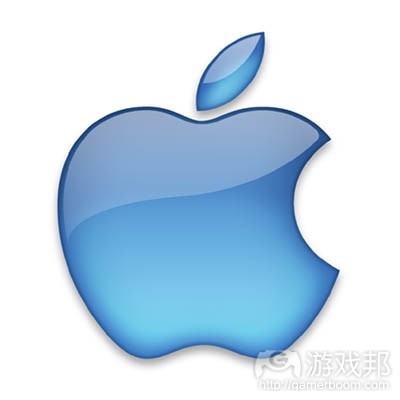
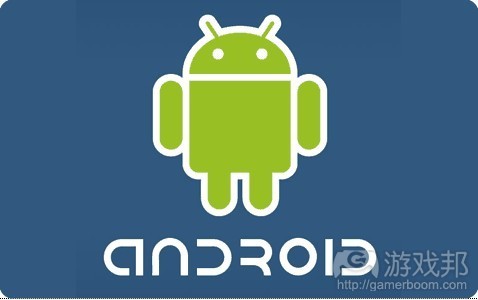

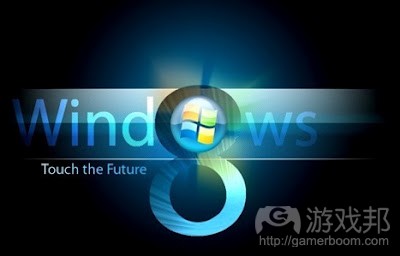
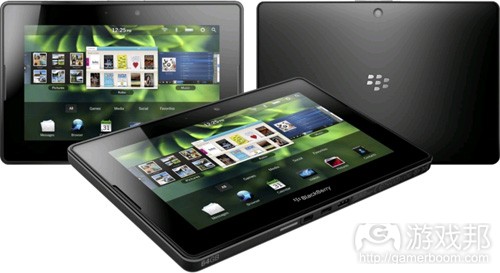
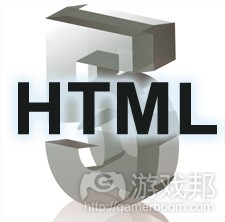














 闽公网安备35020302001549号
闽公网安备35020302001549号